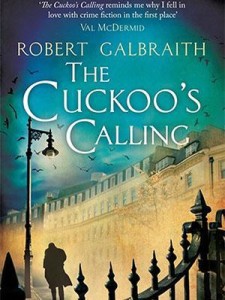 A handful of reporters discovered it. The literary world had been buffaloed. Readers and industry insiders alike had the wool pulled over their eyes. They’d been flimflammed. OK, it wasn’t quite that bad, but still, perhaps the most famed author of our day pulled a fast one.
A handful of reporters discovered it. The literary world had been buffaloed. Readers and industry insiders alike had the wool pulled over their eyes. They’d been flimflammed. OK, it wasn’t quite that bad, but still, perhaps the most famed author of our day pulled a fast one.
Jo Rowling, better known as the author of the Harry Potter books, published a crime novel and kept it a secret. She successfully pulled this trick off with the help of her agent and publisher, putting out The Cuckoo’s Calling under a male pseudonym and claiming the work was from a debut author.
Critics raved about the novel. Reviewers praised it. For two full months, the public was fooled, but recently reporters at the Sunday Times began to put the dots together.
This “new” author had the same agent as J. K. Rowling; the same publisher who published Rowling’s previous books also published this stunning mystery; the author didn’t hide the fact that “Robert Galbraith” was a pen name; “his” bio said he’d gone from a career in the military to one in the “civilian security industry”–so when did “he” learn to write like a professional novelist?
But the clincher. The style and subject matter were reminiscent of Rowling’s other work.
All this is interesting to me as a writer, but the point that made the story compelling is that Rowling said she loved writing as Galbraith because it was a “liberating experience.” She didn’t have the expectations of a waiting public. She was free from midnight-book-release hype. She could write and sit back to see what the honest response to her work would be–not the response to writing royalty, but to this particular story.
Undoubtedly she wasn’t disappointed. Here’s a sampling of the sixty-six Amazon reviews (36 five star, 17 four star, 8 three star, 0 two star, 5 one star–all posted after the revelation that Rowling was the author):
It’s hard to put your finger on exactly what it is that makes The Cuckoo’s Calling such a terrific new Private Investigator crime fiction debut. On the surface it seems straightforward, unexceptional and unambitious, everything fits the established conventions, there’s nothing immediately new that stands out, and yet it’s an utterly compelling read with strong characters that wraps you up completely and thrillingly into the investigation.
I’ll admit, I was disappointed that Rowling wasn’t writing more fantasy. Apparently she intends to stick with this new crime fiction series for a while.
But I keep coming back to her saying that writing without expectations was freeing. I’ve heard somewhat the opposite from writer friends. If their first book is successful, now they feel the pressure to come up with something as good or better for their second book–and to do it in half the time.
Rowling mentioned the hype, too. At the end of the Harry Potter series, it seemed as if all eyes were on her as the release date of the next book approached. And what if it failed?
Most readers don’t think about that question. So many people were fans, they weren’t thinking particularly critically toward the end. They just wanted to know how things were going to turn out for the characters in whose lives they’d become invested. Could the Harry Potter books have failed in the end? I doubt if they could have in an ultimate sense.
The Hunger Games, for instance, had many readers disgruntled in the end, but no one is saying the series failed.
And still, writers live on the edge of expectation. Unpublished authors live with the expectation of editors for crisp writing, fresh stories, yet ones that aren’t so far “out there” that readers will not want to go on the reading journey with them. The expectation is that writers will find that razor thin balance between the comfortably familiar and the inventively original.
Published authors, as I noted earlier, have the expectations of success. Will readers keep on liking the books? Will publishers keep on contracting them? Will they “break out”? If one breaks out, will the next one? The merry-go-round continues.
 Rowling essentially chose to dial it back, to experience the expectation of . . . no one. She didn’t have to win over an acquisitions editor as a new author would. Under her pen name she didn’t have to live up to her own reputation. She could write for the fun of writing a story she wanted to tell. In other words, the pressure was off.
Rowling essentially chose to dial it back, to experience the expectation of . . . no one. She didn’t have to win over an acquisitions editor as a new author would. Under her pen name she didn’t have to live up to her own reputation. She could write for the fun of writing a story she wanted to tell. In other words, the pressure was off.
We call someone like J. K. Rowling “self-motivated.” After all, as far as making money is concerned, she doesn’t need to write another day in her life. But she wants to. Without pressure. She generates enough pressure herself, I imagine.
Pressure’s not a bad thing, I don’t think. But pressure to perform can show all of us, in whatever field we work, who we are and who we worship.
Who we are. The best way I can explain this is by offering myself as an illustration. I have come to realize several things about how I react to pressure to perform. First, I am a perfectionist, but that also makes me a procrastinator. If I “don’t have time” to do a job as perfectly as I think it needs to be done, then I have no choice but to accept any less-than-best effort. In other words, I use my procrastination to fend off my perfectionism.
Second, if my back is to the wall and I must perform, I turn into a bulldozer. It doesn’t really matter whose feelings I hurt or who I slight or ignore. They have to understand, after all, that I’m under deadline. This work HAS to get done. Outta my way!
Neither of those two is attractive or godly. But I wouldn’t know those things about myself–and therefore my need to bring them under the control of the Holy Spirit–if it weren’t for the times I’m under pressure.
Who we worship. If I care more for how I will look in public than how God views me, I’m making public opinion my idol. Or my sense of accomplishment. Or my perfectionism. And if I avoid pressure, I may be making my ease and comfort my idol.
The bottom line, as I see it, is this. Jesus said His yoke is easy and His burden is light. If I work for Him, put myself under His expectations, that’s actually the least pressure I can face. Plus, He’s promised to fill me with His strength when I am weak. That’s about as pressure free as I can imagine, although it has nothing to do with me trying to wiggle out from under it.
Just the opposite. I’m accepting my responsibility as God’s child to
walk in a manner worthy of the Lord, to please Him in all respects, bearing fruit in every good work and increasing in the knowledge of God; strengthened with all power, according to His glorious might, for the attaining of all steadfastness and patience; joyously giving thanks to the Father, who has qualified us to share in the inheritance of the saints in Light. (Col 1:10-12)
![]() Back in April word spread that the Faith and Fiction Alliance under the leadership of author Becky Minor was planning a first ever Christian speculative fiction conference, and Realm Makers was born. Today this first-of-a-kind conference kicks off.
Back in April word spread that the Faith and Fiction Alliance under the leadership of author Becky Minor was planning a first ever Christian speculative fiction conference, and Realm Makers was born. Today this first-of-a-kind conference kicks off. As far as Spec Faith is concerned, the highlight of the conference will be tonight when our own E. Stephen Burnett makes the presentation of the 2013 Clive Staples Award. It’s such an honor to be included in the Realm Makers Conference. I for one will be eagerly waiting to see pictures and hear about all the goings on.
As far as Spec Faith is concerned, the highlight of the conference will be tonight when our own E. Stephen Burnett makes the presentation of the 2013 Clive Staples Award. It’s such an honor to be included in the Realm Makers Conference. I for one will be eagerly waiting to see pictures and hear about all the goings on.































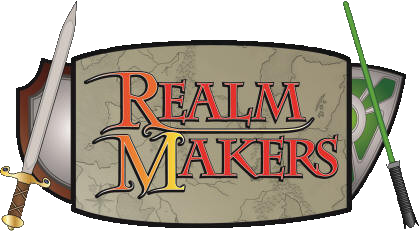

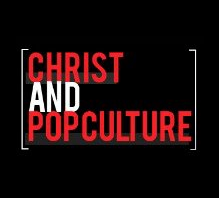
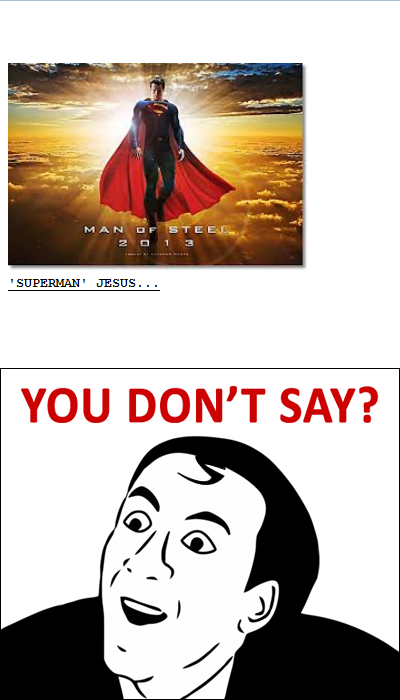



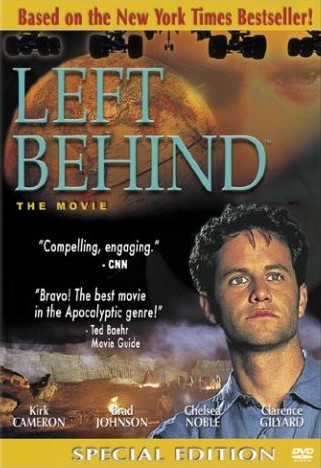


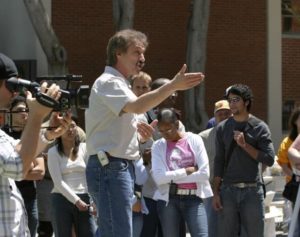


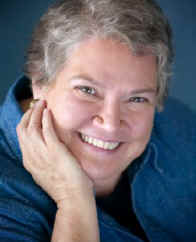






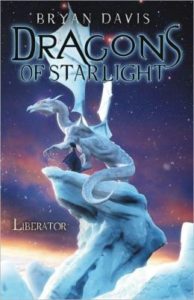
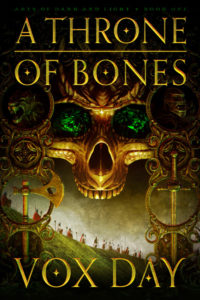
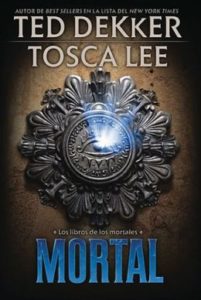


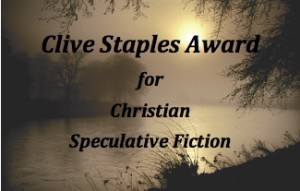
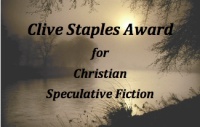
 We still have the business of selecting a winner. As you may recall, the Realm Makers Conference for writers and fans of speculative literature is partnering with CSA and SpecFaith this year. Consequently, on August 2, the first night of the RM conference in St. Louis, SpecFaith webmaster and regular columnist E. Stephen Burnett will make the announcement of and presentations to the winner. This author will receive a commemorative plaque and a modest cash prize supplied by the sponsoring groups.
We still have the business of selecting a winner. As you may recall, the Realm Makers Conference for writers and fans of speculative literature is partnering with CSA and SpecFaith this year. Consequently, on August 2, the first night of the RM conference in St. Louis, SpecFaith webmaster and regular columnist E. Stephen Burnett will make the announcement of and presentations to the winner. This author will receive a commemorative plaque and a modest cash prize supplied by the sponsoring groups.



